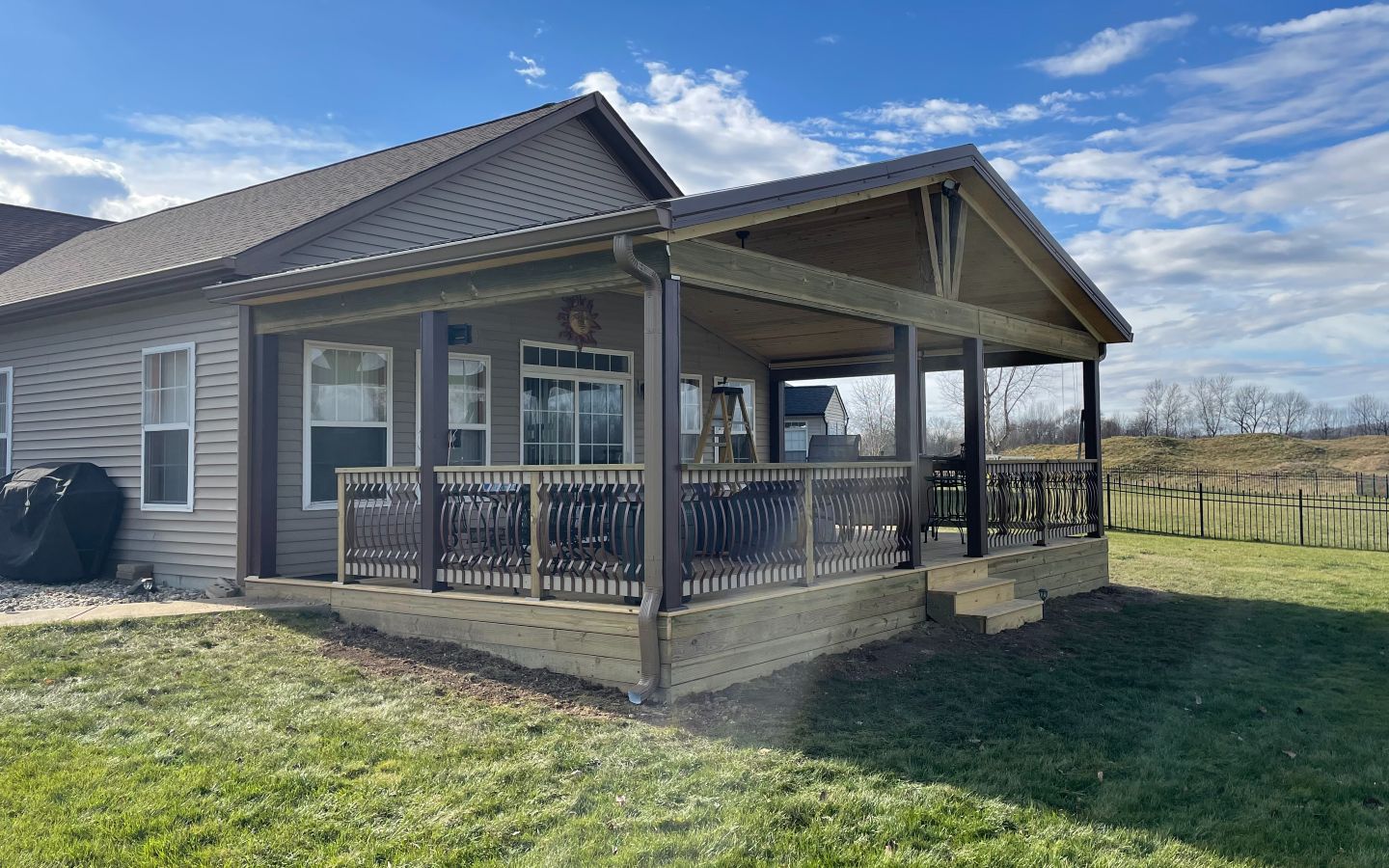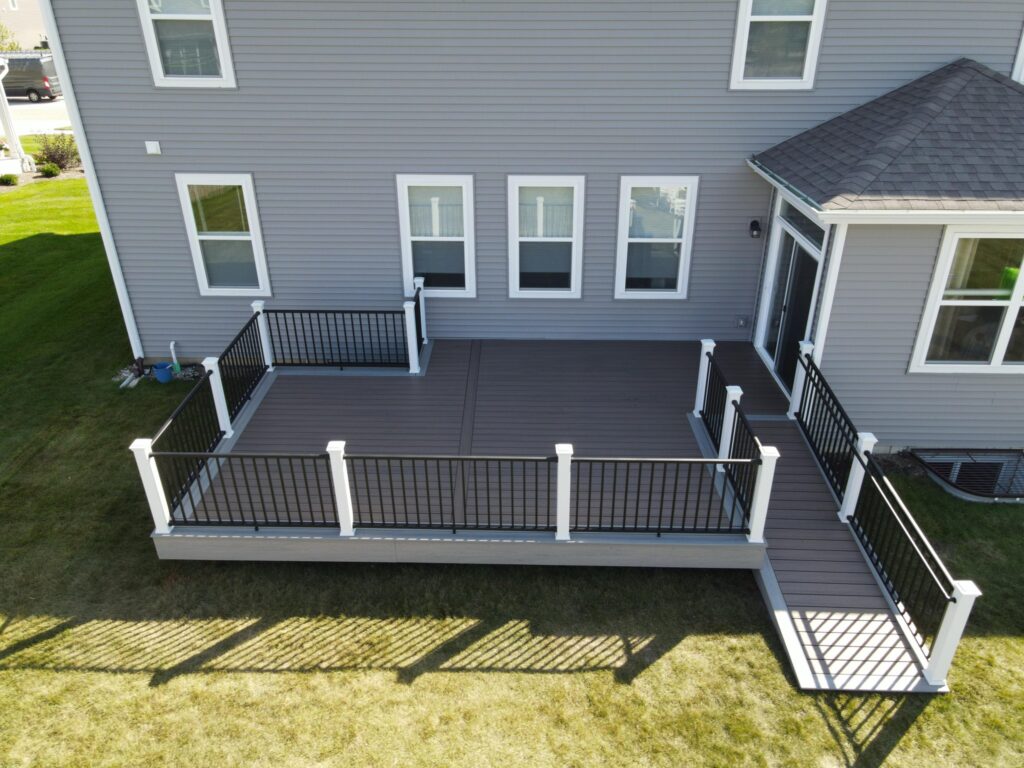Make your outdoor ideas a reality with Deck Builders Near Me
Exploring Different Kinds and Benefits of Deck: A Comprehensive Overview
The outside deck is greater than just an expansion of one's living space; it's a testimony to individual design, a place for celebrations, and a sanctuary to loosen up. The selection of outdoor decking product significantly influences these aspects, with choices ranging from the traditional appeal of timber to the usefulness of composite, and the durability of aluminum. Understanding the nuances of these materials is important, so let's begin our exploration, one deck type at a time.
Understanding the Basics of Outdoor Decking Product
Decking product serves as the backbone of any deck project, determining the total aesthetics, resilience, and functionality of the final item. The marketplace uses a large range of materials, each with one-of-a-kind features fit to different design preferences and environmental problems. The selection includes natural wood, composite, plastic, aluminium, and even concrete. Timber, being the standard option, provides a timeless, timeless charm. Composite, a combination of timber and plastic, provides wood-like aesthetic appeals with less upkeep. Plastic and aluminium supply modern, minimalistic alternatives, while concrete is favored for its unmatched resilience. The choice of product considerably influences the deck's life expectancy, maintenance needs, and resistance to aspects. Comprehending the essentials of decking product is essential for an effective deck project.
Benefits and Downsides of Wood Decks
In evaluating deck types, comprehending the benefits and drawbacks of wood decks comes to be vital. This includes considering variables such as the sort of wood selected and its influence on the deck's efficiency. The succeeding conversation will explore these points carefully to supply a thorough sight of the drawbacks and benefits connected with wood decks.

Wood Deck: Disadvantages & pros
The charm of timber decks can not be overstated. They exhibit an ageless appeal and cozy visual that many homeowners locate irresistible. This all-natural material is functional, enabling a range of layout possibilities, and can provide an exceptional roi.
Nonetheless, wood decks additionally include certain disadvantages. They require constant maintenance, consisting of regular cleaning, discoloration or painting, and prospective replacement of rotten or deformed boards. Timber is likewise susceptible to damage from pests and harsh weather. Its durability can be less than various other decking materials, specifically if not effectively cared for.
Selecting Your Timber Type

Checking out the Benefits of Composite Decking
Turning interest to composite outdoor decking, it provides special benefits. Its resilience outshines traditional wood in harsh weather, reducing the need for frequent upkeep. Additionally, it provides a pleasing visual appeal with variable style choices.
Composite Decking Sturdiness Perks
Regardless of the variety of outdoor decking options readily available in the market, composite decking stands out for its longevity. This type of outdoor decking, made from a blend of timber and plastic, gives a durable, durable platform immune to components that usually degrade other products. In recap, the sturdiness advantages of composite decking offer a lasting, affordable option for exterior living spaces.
Maintenance of Compound Decks
In enhancement to longevity, composite outdoor decking flaunts a major advantage in terms of upkeep. Unlike typical timber decks, click for info composite decks are not prone to rot, warp, or insect damage, thus drastically reducing the demand for normal repair services and replacements. The low-maintenance nature of composite decks not only gives simplicity of upkeep yet additionally contributes to their long-term cost-effectiveness.
Visual Charm and Variability

The Rising Appeal of Aluminum Decks: Why Choose Them?
As the need for low-maintenance and sturdy decking rises, light weight aluminum decks are significantly coming to be the go-to choice for many house owners and home builders. These decks, made from a lightweight yet tough metal, supply a number of benefits over conventional timber or composite decks. To start, light weight aluminum is naturally immune to the elements, indicating it will not warp, crack, or discolor over time. This makes it a cost-efficient choice in the future. Additionally, its non-porous surface area protects against the growth of fungi, mold and mildews, or pests, making certain a healthy and balanced and tidy outdoor area. Light weight aluminum decks are additionally eco-friendly, as they are often made from recycled materials and can be reused once more at the end of their lifespan. Finally, their modern and sleek aesthetic charm fits well right into modern home layouts.
Maintenance Tips for Different Decking Products
In spite of visit this page the range of decking products offered on the market, each features its own set of upkeep requirements to ensure long life and aesthetic allure. For example, natural timber decks need regular tarnishing or sealing to stop climate damage, while composite decks require periodic cleansing with soap and water to eliminate discolorations and debris. On the various other hand, aluminum decks need less upkeep, just needing occasional rinsing with water to keep them clean. Treated timber decks, although resistant to rot and pests, also require frequent securing to maintain moisture out. Consequently, understanding these upkeep requires is important for deck proprietors to maximize their investment and maintain their decks looking their ideal for many years to find.
When Selecting Your Deck Type, aspects to Take Into Consideration.
Composite decks resist moisture well, making them suitable for stormy or humid areas. While some may want an extravagant, exotic wood deck, spending plan restraints could require a much more cost-effective selection like pressure-treated wood. Thus, climate, expense, maintenance, and way of living are vital factors to consider in deck choice.
Final thought
Timber decks enchant with all-natural beauty, while composite and light weight aluminum selections provide resilience and low upkeep. Prior to devoting to a certain deck kind, house owners need to meticulously consider the advantages, disadvantages, and upkeep requirements of each material.
In assessing deck types, understanding the pros and disadvantages of timber decks becomes essential.Despite the wide variety of decking choices offered in the market, composite outdoor decking stands out for its toughness. Unlike typical wood decks, composite decks are not at risk to rot, warp, or insect damages, hence significantly decreasing the need for regular fixings and substitutes. These decks, made from a lightweight yet sturdy metal, use numerous advantages over conventional wood or composite decks. All-natural wood decks call for regular securing or discoloring to avoid weather condition damages, while composite decks require regular cleaning with soap and water to remove stains and particles.